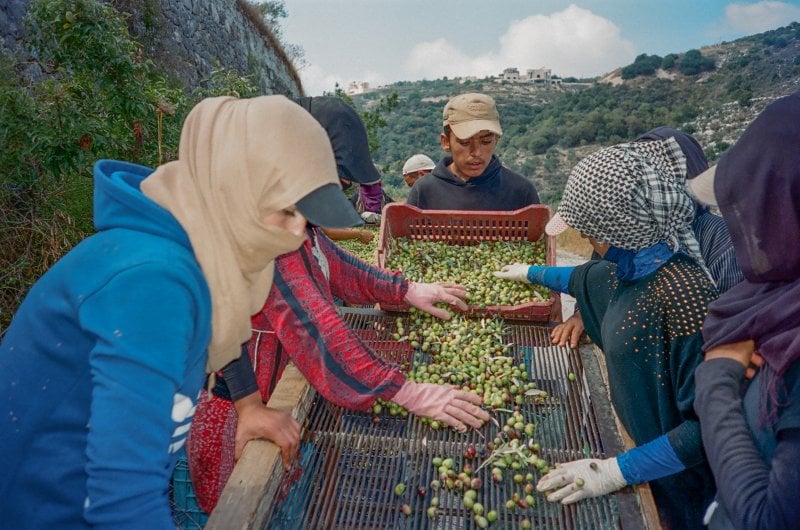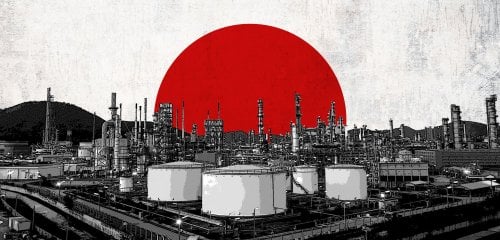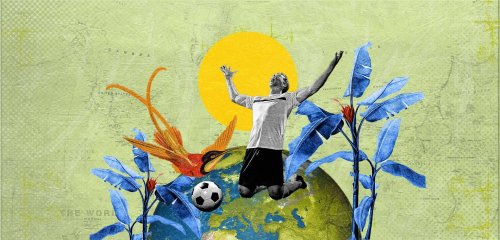Surrounded by the centenarian olive trees of the Arsanios family grove in Kour, northern Lebanon. The young buds, a sea of white and yellow flowers, are pushing through the soil toward the sun amid the centenarian olive trees of the Arsanios family grove in Kour, northern Lebanon. You can hear the faint hums of bees and the sound of wind reverberating through the trees. A few dogs bark in the distance.
Karim Arsanios, founder of Solar Olives, is intimately connected to his family’s trees. As he walked along the groves, gently pulling off dried leaves, he paused to close his eyes, breathing in the fresh, clean air that has become a rarity in the streets of Beirut.
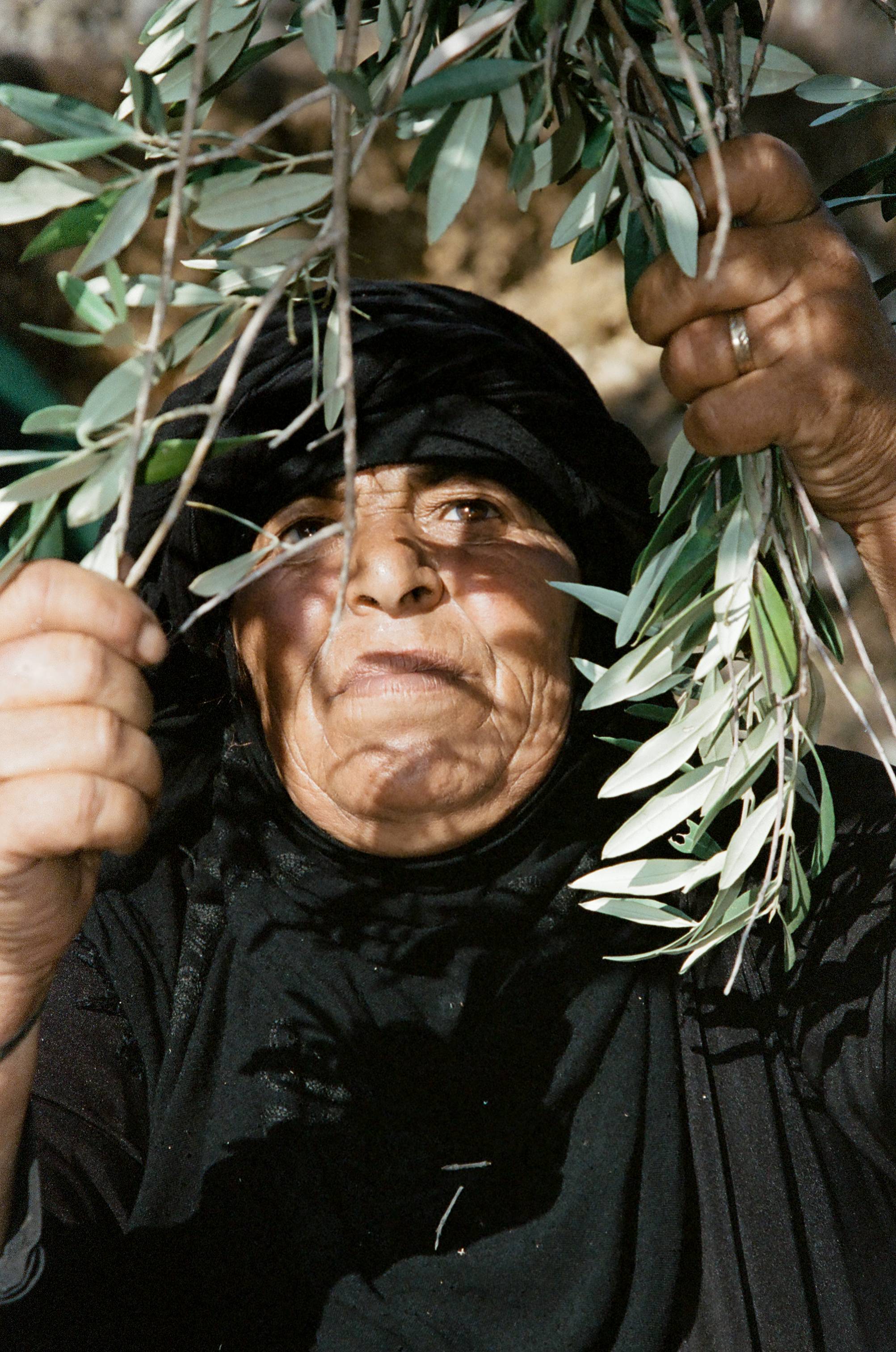 Once the harvest takes place in October, each olive is handled with care, never picked by tickers or machines, which can bruise the fruit and compromise its quality. After the harvest, the olives are individually sorted by hand—a time-consuming process. Photo courtesy of Michèle Aoun (Instagram: @shamelesslights).
Once the harvest takes place in October, each olive is handled with care, never picked by tickers or machines, which can bruise the fruit and compromise its quality. After the harvest, the olives are individually sorted by hand—a time-consuming process. Photo courtesy of Michèle Aoun (Instagram: @shamelesslights).
Once the harvest takes place in October, each olive is handled with care, never picked by tickers or machines, which can bruise the fruit and compromise its quality. After the harvest, the olives are individually sorted by hand—a time-consuming process. Photo courtesy of Michèle Aoun (Instagram: @shamelesslights).
Arsanios’ work in investment portfolio management had coincidentally led him to the sobering realization he wasn’t where he wanted to be. Five years ago, he quit his job to launch Solar, a tribute to his late mother. ‘Sol’ for sun, and ‘Ar’ for Arsanios.
“I was feeding a system at the root of everything—hypercapitalism, the exploitation of the land and ourselves,” Arsanios, who returned to Lebanon in 2019 after pursuing an MBA in sustainable management in San Francisco, told Raseef22.
The land, he said, grounded him in a way nothing else had. Tending to the trees gave him a higher purpose, a sense of responsibility, and a deeper understanding of life beyond the self. The land became a mentor, showing him how to nurture, adapt, and care for something larger and more lasting than himself.
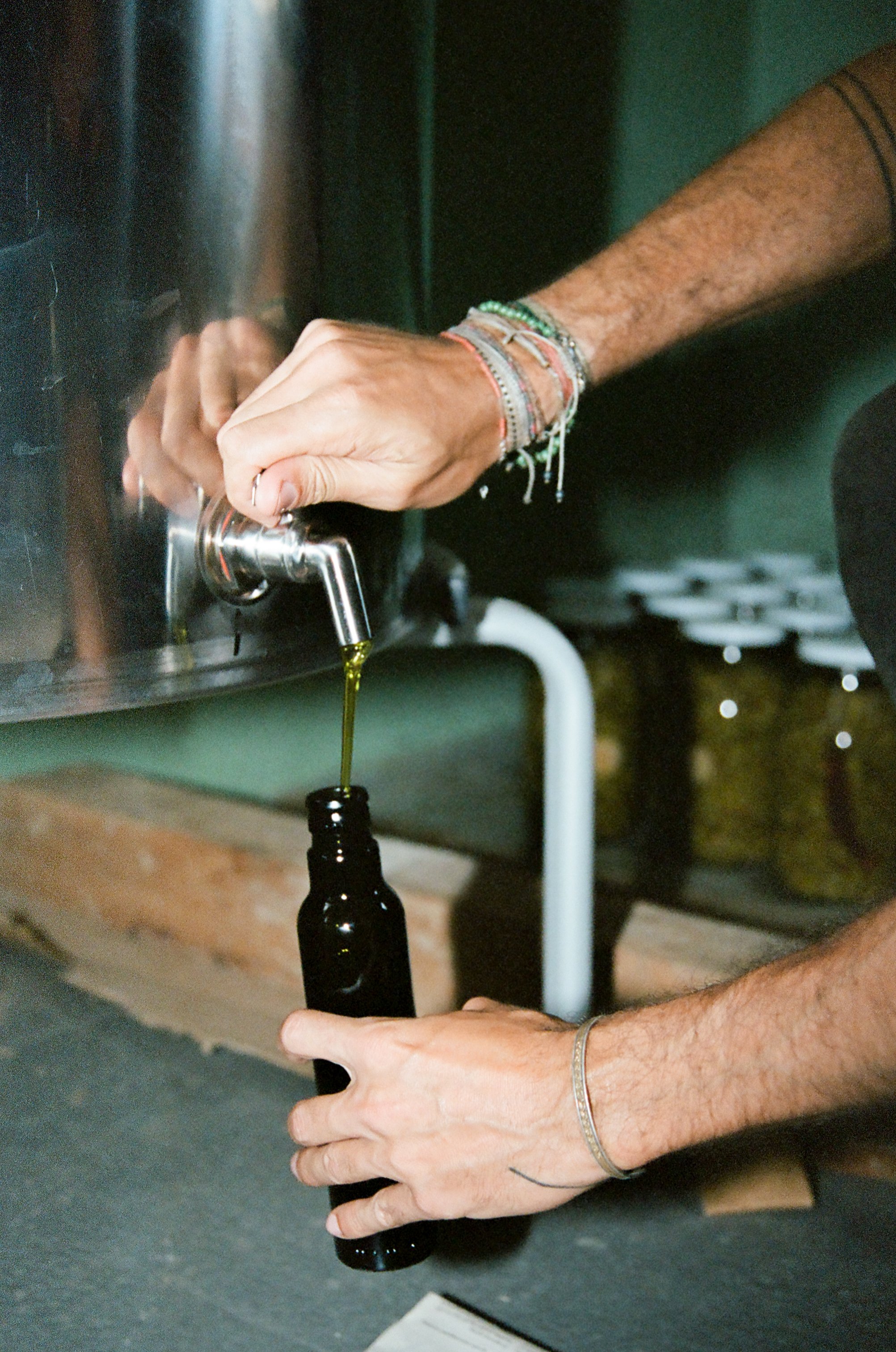 Solar's founder, Karim, pouring olive oil from his family's grove. Photo courtesy of Michèle Aoun (Instagram: @shamelesslights).
Solar's founder, Karim, pouring olive oil from his family's grove. Photo courtesy of Michèle Aoun (Instagram: @shamelesslights).
Solar's founder, Karim, pouring olive oil from his family's grove. Photo courtesy of Michèle Aoun (Instagram: @shamelesslights).
Solar, he decided, would not rely on extractive and damaging agricultural practices. Arsanios was determined the business would benefit and enrich the land. Arsanios also has the risks and increasing threat of climate change in mind, partnering with the European Bank for Reconstruction and Development (EBRD) and researcher Dr. Lamis Chalak, a professor at the Lebanese University Faculty of Agronomy, on a project dedicated to this endeavor.
Dr. Chalak has authored several key papers on the genetics and morphology of local olive tree varieties and has conducted extensive research on olive trees throughout Lebanon. The project aims to assess the condition of Solar’s olive terraces in Kour, address any health issues, and enhance agrobiodiversity, which ultimately will increase biodiversity and ecosystem resilience.
Solar is pioneering a regenerative model of olive farming that prioritizes land and tree health over traditional efficiency-driven methods. While conventional monoculture maximizes space, it leaves crops vulnerable to disease and climate shocks due to limited biodiversity. Solar counters this by allowing native biodiversity to thrive, avoiding tilling, and eliminating chemical use.
Since its founding in 2020, Solar has faced immense challenges operating in Lebanon’s volatile landscape. The company endured a period marked by revolution, a global pandemic, and severe economic collapse. Over the years, the olive oil producer has navigated numerous challenges, including currency instability, shifting gas prices, and rising costs associated with olive pressing. Sourcing reliable labor and finding buyers for high-quality products proved especially tough in an environment where few could prioritize long-term value over immediate survival.
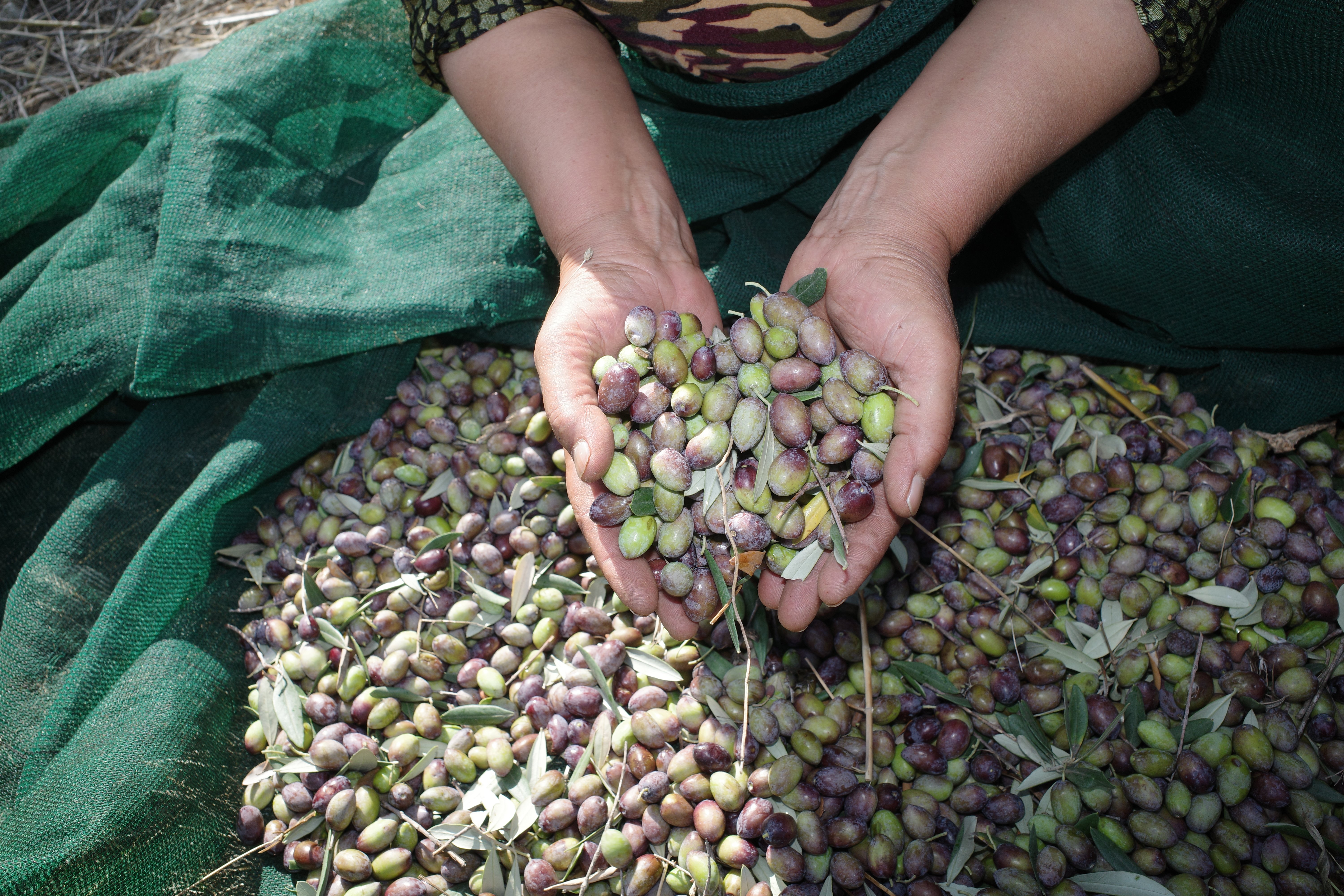 Olives harvested from the Arsanios grove. Photo courtesy of Michèle Aoun (Instagram: @shamelesslights).
Olives harvested from the Arsanios grove. Photo courtesy of Michèle Aoun (Instagram: @shamelesslights).
Olives harvested from the Arsanios grove in Kour. Photo courtesy of Michèle Aoun (Instagram: @shamelesslights).
The escalation of Israel’s vicious war on Lebanon right before harvesting season in October 2024 brought in further complications.
“Operations stalled again, sales dropped, and many of our workers couldn't always make it to the groves for harvest due to safety concerns,” said Arsanios.. “Trying to run the business during war was more than just difficult—it was heartbreaking. People were being killed, and each day felt heavier than the last. ”
Once the harvest takes place in October, each olive is handled with care, never picked by tickers or machines, which can bruise the fruit and compromise its quality. After the harvest, the olives are individually sorted by hand—a time-consuming process. It’s a costly approach, but Arsanios considers it an essential one.
“The answers to our future lie in the agricultural knowledge of the past—rooted in the way our ancestors cared for the land, not just for what it produces, but for continuity,” said Arsanios. “We’re only passing through. The land and olive trees will outlive us all.”
Arsanios believes Solar can serve as a reminder that care, continuity, and deep-rooted purpose can flourish even in the harshest conditions. As the olive trees begin to bloom again this spring, so too does the belief that tending to the land is not only an act of preservation, but of hope.
Raseef22 is a not for profit entity. Our focus is on quality journalism. Every contribution to the NasRaseef membership goes directly towards journalism production. We stand independent, not accepting corporate sponsorships, sponsored content or political funding.
Support our mission to keep Raseef22 available to all readers by clicking here!
Interested in writing with us? Check our pitch process here!
